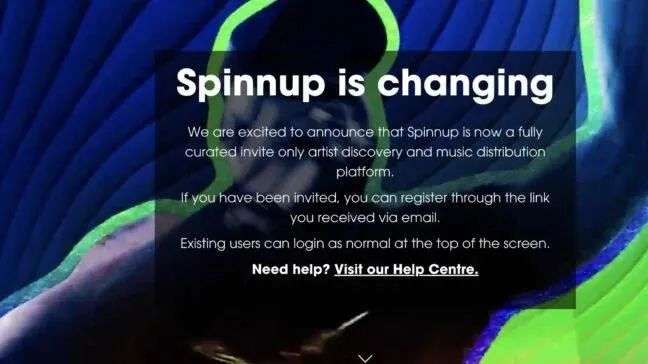In order to make a multi -point tax, the three major records decided to suppress independent musicians
Author:Pioneer Time:2022.07.27
Author | Peng Peng Editor | Fan Zhihui
For the three major records, the days when they rely on music copyrights and their carelessness gradually drifted away.
Recently, the CEO Denis Ladegaillerie of the French independent music distribution company and Tunecore's parent company Believe accused the three major records on lobbying the streaming platform in an interview, hoping that they would reduce the tax rate of DIY artists (that is, independent musicians).

This is exactly the same as MBW founder Tim Ingham's recent forecast. He believes that in the future, major record companies may soon pressure to Spotify, asking them to pay higher taxi for head artists to fight for self -distribution service platforms and independent musicians.
So why do the three major records "suppress" the self -distribution service platform and independent musicians? What changes will the three major records and independent music bring to the market?
One more piece of cake
In the era when everyone can become the lead singer, their "King of Heaven" is becoming increasingly worthless. The reason behind this is that a large number of independent musicians are rising.
In June of this year, Rob Stringer, chairman of Sony Music, told investors, "If you upload 80,000 songs on the mainstream music streaming platform (DSP) every day, the market share of the three major records will be automatically diluted." The quality of these DIY music questioned, "Frankly speaking, some of these music are like some fragmented garbage. They can occupy market share only because of the scale."

Tim used data to prove his point of view in podcasts. Taking Spotify as an example, as of the end of 2021, the number of musicians with less than 50 audiences on Spotify each month was 6.3 million. Suppose they have an average of 25 listeners per month. In this way, these unknown musicians have created a total of 157.5 million listeners.
In contrast, on Spotify, Ed Sheeran, the top of the list, is only 83.6 million listeners per month, which is equivalent to half of the accumulated listening scale of the 6.3 million artists. In other words, unpopular musicians on Spotify, no matter what the personal cause is developing, is a powerful force to combine.

Denis also believes that although the three major records "have been losing market share in the past five years", the strategy of "re -recapting the losing market share through higher tax rates" is completely wrong. People are exactly the same version of the tax rate.
In his opinion, there are no shortage of potential musicians in independent musicians. For example, the musician Lauren Spencer-Smith uploaded her popular song "FINGERS CROSSED" through Tunecore, ranking fourth in the British rankings, in the other four other four. The country's music rankings successfully reached the top.

Of course, Denis is also sure that the head musicians can bring new subscribers and users to the platform and bring new traffic, but the platform side is actually "purchasing advertising positions, digital marketing activities for the head musicians, and is the head for the head. Music marketing has made significant contributions. "In other words, the platform has reduced marketing costs for head musicians. Essence
Denis also said that through Tunecore's independent musician works, there are fewer false traffic and lower copyright infringement rates. Therefore, "the service cost of service is completely unreasonable to use different version of tax treatment."
Since the cost of cost is not involved, the price discrimination strategies of major record companies cannot stand, but it is only before the market share further reduces its bargaining ability.
Data show that in 2017, the three major record companies and Merlin contributed 87%of the songs to Spotify. By 2022, this value had fallen to 77%. In other words, the record giants have lost 10%of the market share on Spotify in just four years.

As Tim said in podcasts, "the three major records have to conduct a license negotiation with the music platform every few years. The smaller the accumulated market share, the smaller their bargaining power." However, under the trend of independent music and creators' economic rise, it seems inevitable that the market share of the three major records will gradually be eroded in the future.
The sense of crisis of three major records
As early as 2017, Spotify had negotiated with the three major records to reduce the proportion of version tax from 55%to 52%. The same rate was also used by Apple Music.
But in fact, the independent musicians on Spotify have told MBW privately that due to certain contract deductions and discounts, they can get less than 52%.
This situation is also verified by Apple Music from the side. On April 16, 2021, Apple Music had disclosed the copyright rate to the musicians, record companies and copyright owners. In the letter, Apple Music emphasized that it will pay the same 52%income for the "all brand", and secretly stated: "Although the tax rate paid by other service vendors to the independent label is far lower than their towards their direction to the direction of their directions The three major records are paid, but we promise to pay the same version of the tax sharing to all labels. " Now that 5 years have passed, whether Spotify will still "conspire" with the record company, and the answer has begun to become unclear. After all, the rise of independent music has become a global trend and has become the industry tide that the record giants cannot reverse.

According to Daniel Ek, the founder of Spotify, in the first quarter of 2021, about 60,000 songs were uploaded to Spotify every day. This number is expected to increase in index type, and it will soon reach 70,000 or even 80,000.
On the other hand, "2021 Chinese Digital Music Annual White Paper" shows that the total number of new songs in the Chinese music scene in 2021 reached 1.145 million, which is equivalent to a new song in 27 seconds a year.
It is worth mentioning that independent music is not only the outbreak of quantity, but also gets a real playback share.

Research institutions MIDIA data shows that the current volume of independent musicians' song playback accounts for 31%of Spotify's total playback volume, and independent musicians accounted for 52%of all winners in the Grammy Award in 2021. Compared with domestic, as of the end of 2020, the original works of independent musicians' original works on Netease Cloud music accounted for 45%.
At the same time, the rise of independent music has also spawned a large number of self -distribution platforms for independent music, and has become a great rival with the three major competition for market share. Data show that from the data in 2017, the self -distribution platform represented by Tunecore, CD BABY, Bandcamp, Ditto, etc. created a revenue of $ 472 million. By 2018, the data reached $ 643 million, an increase 35%, which has increased by more than three times compared to the market.
Outside the distribution platform, the streaming platform recently adjusted the tax mechanism is also unfavorable to the head musicians. In 2021, SoundCloud took an important step towards the FPR mode (Fan Powered Royalties). The traditional model is to gather all the funds on the platform and allocate the share of the artist on the streaming media. Under the new model, fans' subscription and payment will only be assigned to the artists who actually listen to.

There is no doubt that the implementation of this model will also reduce the income of the head musicians on the platform, and it is these record giants behind them.

Therefore, only the Warner Music family agrees with the new model of SoundCloud. However, the conditions for SOUNDCloud and Warner Music is that if Warner's artist's income decreases, SoundCloud will provide it with a "minimum guarantee" income, which is flat with the rate of rates in the traditional model.
In the context of the creator economy becoming the general trend, the independent music group has continued to grow, and there are more and more mainstream artists self -reliability. In this way, the three major record companies will naturally have a sense of crisis.
Where will the market share dispute?
The rise of the independent music market is unstoppable, and the record giants obviously follow the strategy of "joining".
In March 2015, Sony Music acquired the independent distribution and service company The Orchard. In addition to serving independent musicians, this platform also cooperated with head artists such as BTS, Jorja Smith. In May 2021, Sony Music acquired AWAL, a company that provided recording services for independent musicians and independent music platforms.
When the Sony Music Sword refers to contemporary independent music, the chairman of Sony Music Rob also said that it will have a larger proportion of content share through The Orchard and AWAL to cope with the scale competition of independent musicians.
Similarly, there are global music who joins the game. In 2013, Global Music launched its own self -distribution platform SPINNUP to provide digital distribution services for unsigned artists under the world. By 2016, the number of independent musicians on the platform had reached 100,000.

However, Global Music announced in May this year that SPINNUP transformed SPINNUP from "open DIY music work distribution service platform" to "selected artists discovery and distribution platforms." Starting from July 19, Spinnup demanded some independent musicians to withdraw their works, and the platform will only be ordered to "artists who have contacted or contact with the SPINNUP team or other subsidiaries of Universal Music" in the future.
Compared with the other two, Warner Music's layout on the self -distribution platform is one step behind, but it is obviously more positive. It was not until 2018 that Warner Music launched its own self -distribution platform Level Music. As soon as the start of the game, Warner Music made a "completely free" sign.
Prior to this, Spinnup and Tunecore will charge the annual service fee from the platform users, while the CD baby platform will draw certain commissions from each song.Looking at the current independent music market, the record giants have to end the scene with independent musicians, self -distribution platforms, and music streaming media platforms.Outside the battlefield, platforms such as Facebook and TIKTOK are constantly transfusion for independent music.The record giants are in it. Seeing that their opponents continue to grow, they cannot know how potential the opponent is still.
Judging from the current situation, there is also a protracted game between mainstream music and independent music, record giants and other competitors.
- END -
Garyic will directed Disney's live -action movie "Hercules"

According to foreign media reports, Gai Ricci confirmed that he will directed Disn...
Writing the Chinese story with the story of the youth story, Master Kong drank boiling water to set off a new boiling forces!

Starting from May 4th Youth Day, Master Kang drank boiling water and continuously ...

